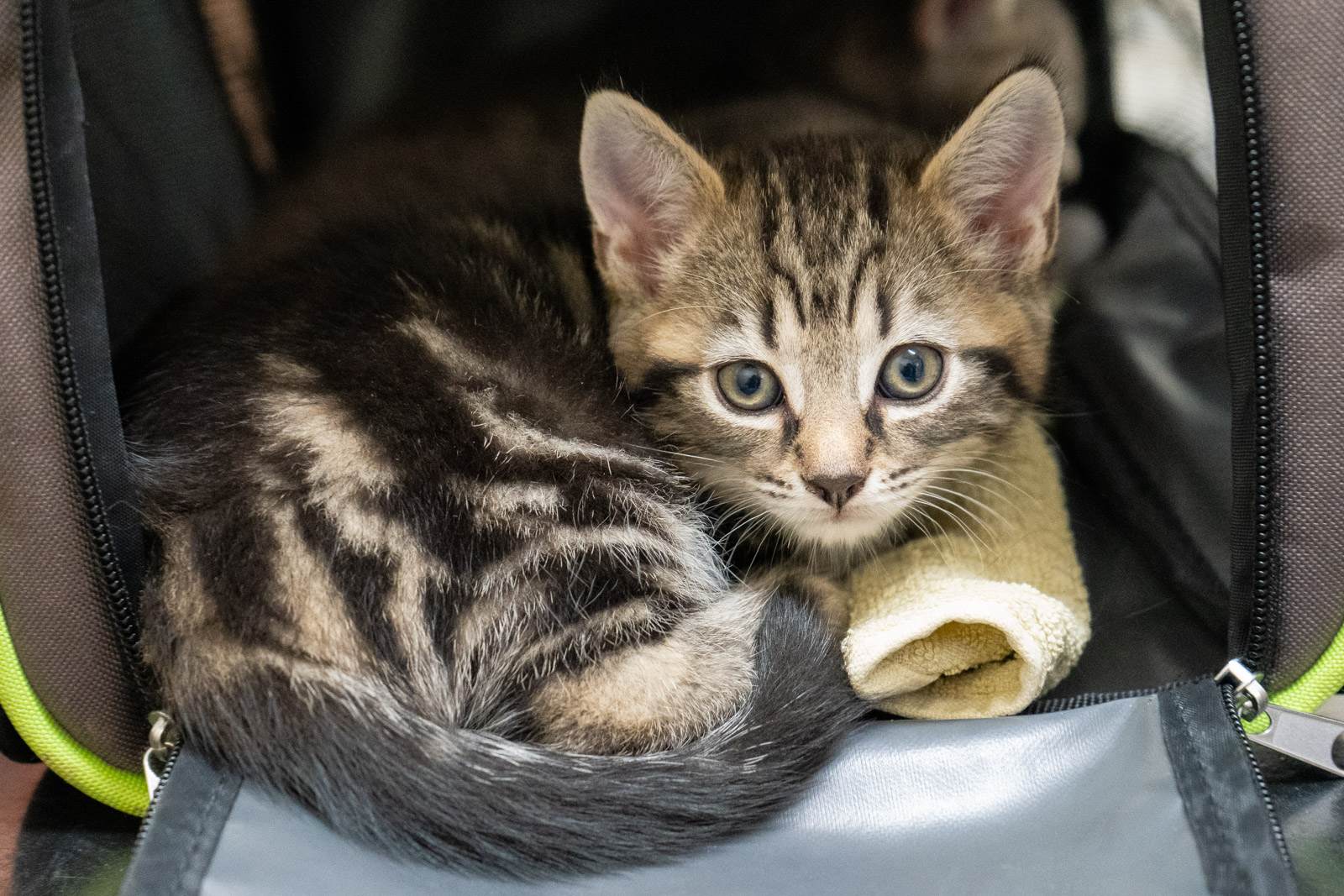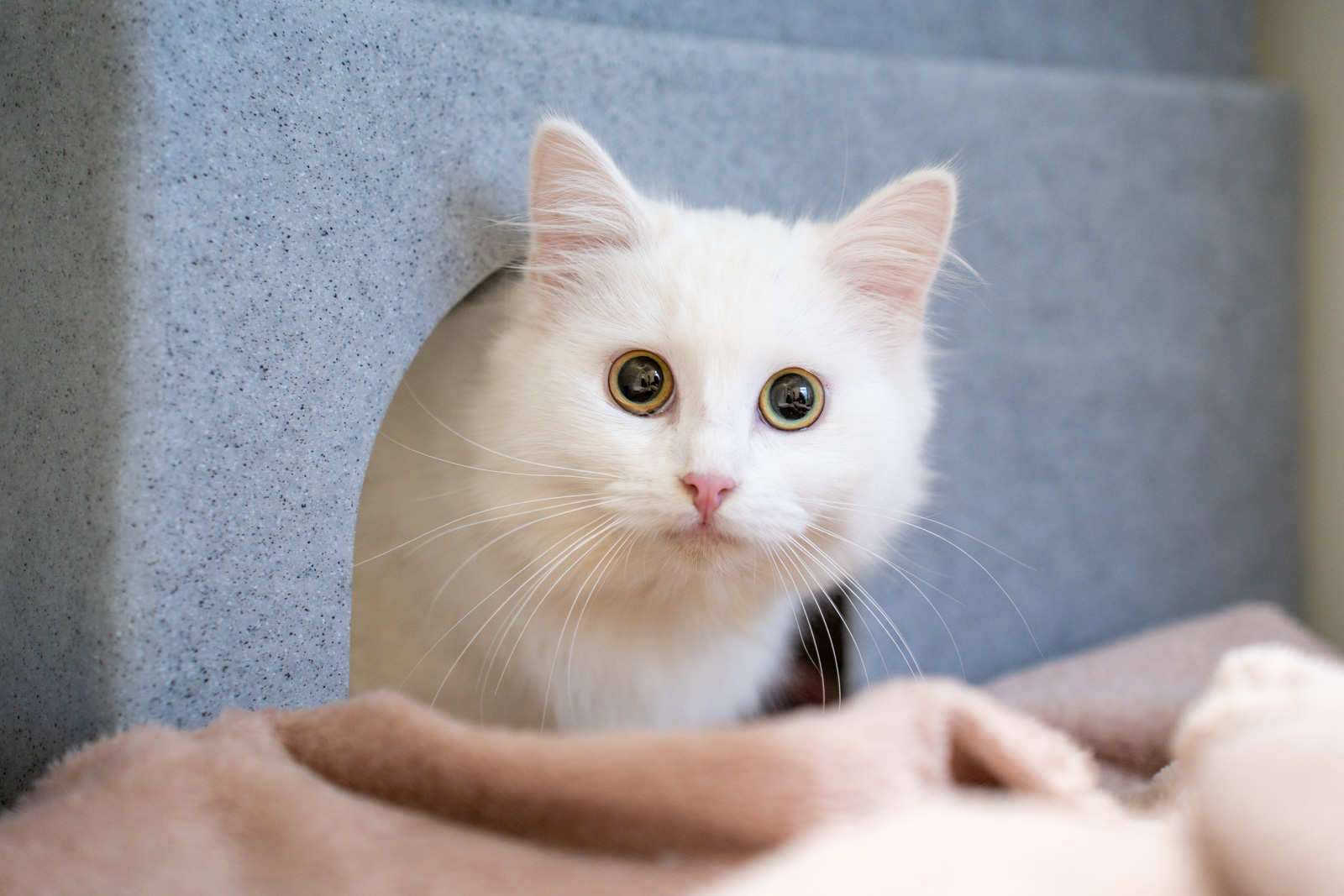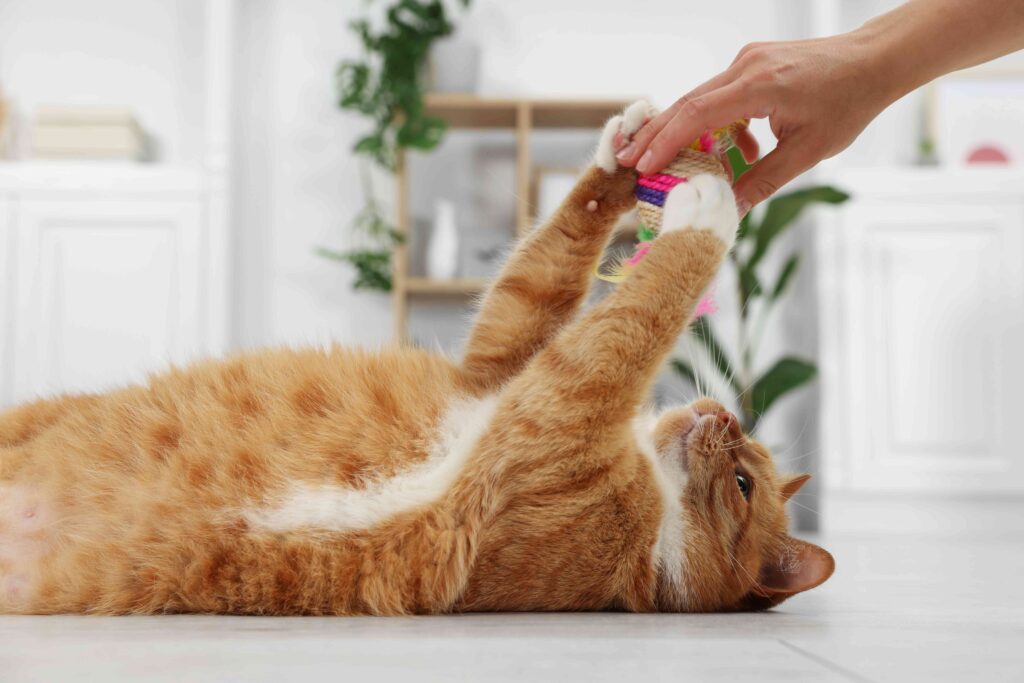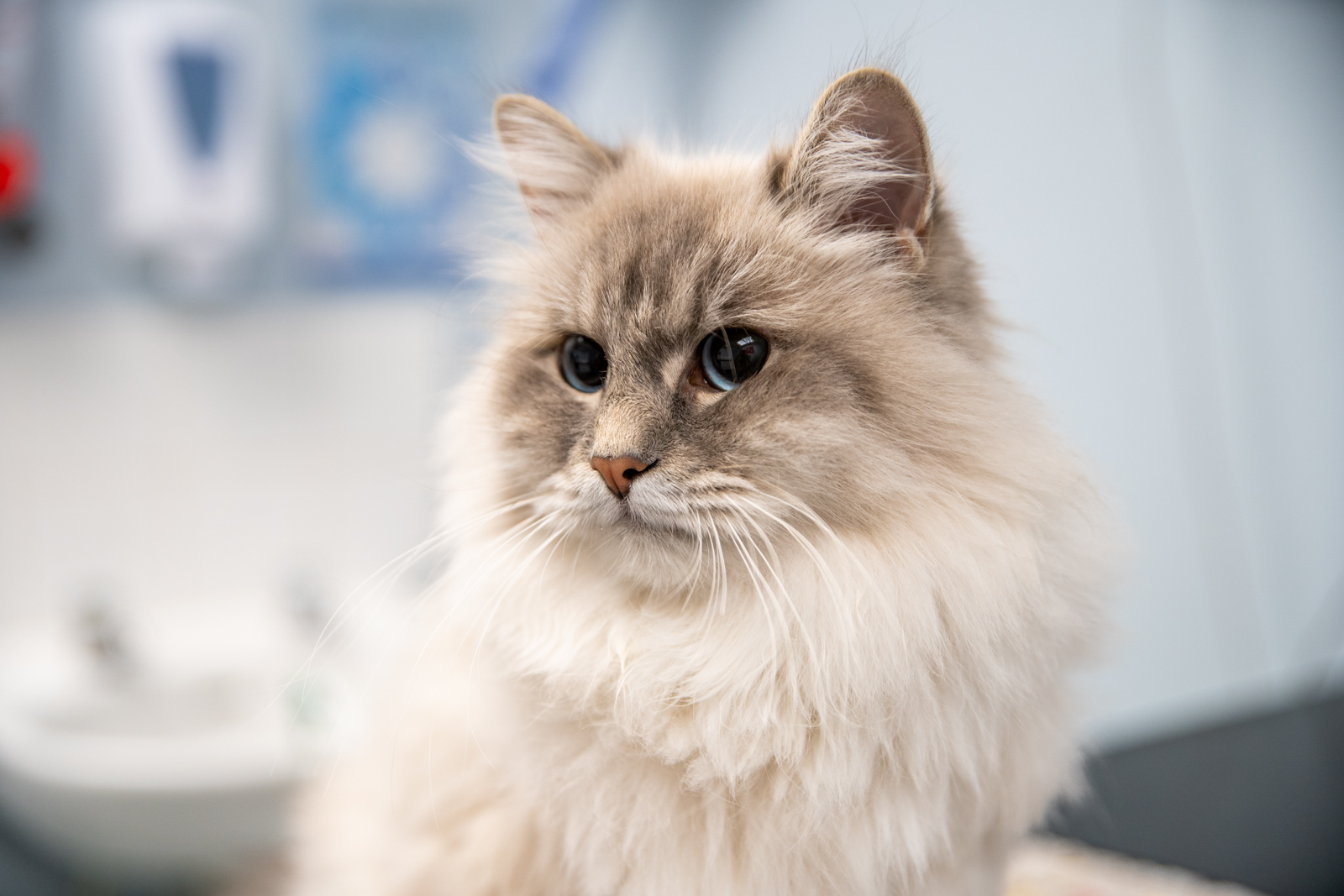Holiday booked! Now, to decide on the best option for your cat while you’re away.
Cats may seem like independent creatures, but they can become unhappy and stressed easily if their needs aren’t properly met.
Read on for advice on deciding between using a cat sitter or a cattery when you go on holiday.
Factors to consider when choosing:
1. Your cat’s age
Do you have a boisterous, inquisitive kitten or a young cat that needs daily interaction and supervision? These are better suited to the cattery environment, where they can be monitored daily or a ‘live-in’ cat sitter.
Kittens require someone to play with and frequent monitoring, so leaving them on their own for long periods of time may lead to them destroying furniture or eating something dangerous.
Older cats may have cognitive issues that could cause them to become confused if abrupt changes are made to their routine or resources are moved, which will cause them distress, so often a sitter is the better option.

2. Your cat’s temperament and how sociable they are
Nervous, shy cats don’t always do well in a completely different environment and prefer their home comforts.
Cats that are not used to or afraid of new people entering their homes may act aggressively or hide.
A cat sitter would be a good option for cats that are better left in their own environment, or that aren’t confident or happy to interact with other cats in a cattery environment – even hearing other cats can be upsetting for some individuals.
A cattery environment can be customised with a cat’s own blankets, beds and food, and can allow a cat to keep to their routine. Some catteries have pheromone plug-ins which may help some cats settle better.
Some catteries are not heated and don’t have visual barriers which can be distressing for many cats.
3. Your cat’s health
Does your cat have a medical condition, such as diabetes, that requires daily medication? Or maybe they have a disease or illness that requires special considerations, such as those with kidney disease urinating more frequently?
Ask if your cattery owner or cat sitter is confident in managing these conditions. Cat sitters and cattery owners may have training administering medications, for example, some qualified veterinary nurses offer cat sitting services.
Always check their training, qualifications and experience and consider a practice run before you go away so they can ask any questions.
Bear in mind, diabetic cats in a cattery may exercise less than normal which could affect their insulin requirements – speak to your vet if your cat’s condition is not stable or you have any concerns about leaving them.
A live-in cat sitter for the duration of your holiday may be a good option for cats with medical conditions.
Choose carefully as there are no qualifications needed to be a cat sitter whereas a cattery is required to be licensed and meet certain criteria to obtain their licence.

4. Your cat’s behaviour and routine
Does your cat like to go outside? Cats that are prevented outdoor access are likely to become frustrated and could begin to display stress-related behaviours such as inappropriate urination and scratching furniture.
Most catteries allow safe and secure access to an outdoor run, where your cat will be provided with mental and physical stimulation.
A live in cat sitter could also facilitate this if your cat does not have free entry or exit to your home.
If you have a multi-cat household, would preventing outdoor access cause relationships to become strained? Or would dynamics change if a stranger came into the household? Could being in a cattery with limited space and resources put a strain on their relationships?
Would your chosen cat sitter be comfortable to look after your cat if they have access to a high risk outdoor environment?
Do you have a plan in place if there are serious injuries, hospitalisation required, insurance, consent and instructions with your veterinary practice. Catteries and boarders are licensed and usually have these in place.
What to look for in a cat sitter
- Ideally, a cat sitter should have experience in owning and caring for cats, including husbandry aspects such as litter tray hygiene.
- They should know what to do in an emergency and be able to follow your set instructions thoroughly and completely.
- Knowledge of cat breeds and breeds with specific considerations, such as long-haired or Sphynxes, is good to have.
- The sitter having extra qualifications, such as an animal care assistant or registered veterinary nurse qualification or a diploma in pet sitting, may help you feel confident and secure in the person who is looking after your cat.
- Always have a plan B in case your cat sitter becomes ill or has a family crisis during your holiday.

What to look for in a cattery
- Holds a local authority licence.
- Clean, well kept individual pens with well managed litter trays and sleeping areas.
- Ask to see where food is prepared – bowls etc should be kept and cleaned separately from litter trays.
- A safety corridor/area in case a cat escapes their individual pen. This will prevent them accessing the outside of the cattery.
- Make sure there are no communal areas and avoid catteries that advertise communal exercise areas. Not only are these stressful for cats, but they also promote virus-sharing.
- The cattery and the pens should be well maintained, in good condition and be made from materials that prevent escape, as well as preventing cats coming into contact with one another – this is how diseases are spread.
- Your cat should have their own sleeping area, exercise area, private toileting area, somewhere to hide and the ability to move around freely.
- Are you able to bring your cat’s home comforts? This is especially important for nervous cats or those with medical issues or those who need a prescription diet.
- Are there commodities to prevent your cat getting too hot or too cold? They should have a safe heater for colder seasons and an area of shade for when the weather gets too hot.
- Does the proprietor ask to see your cat’s vaccination certificate before you can book with them? This shows that the cattery is serious about the health and welfare of your cat and does as much as possible to prevent disease transmission.
- Do the staff have experience in caring for a variety of breeds, temperaments and health issues?
Written by:
Claire Kealey RVN – Veterinary Nurse
